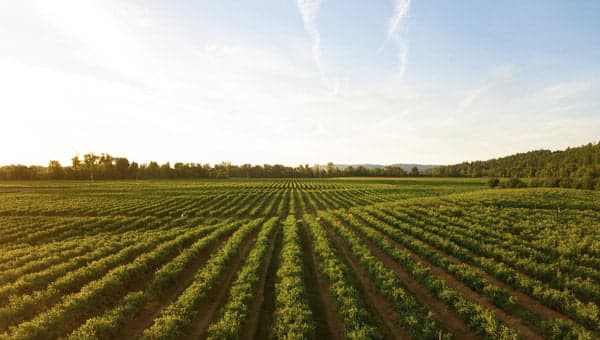
I might as well say it right away, the food chain is holding and will hold. It is shaken. But it is shaken above all by logistical disruptions and therefore by supplies, erratic and compulsive consumer behavior, momentary transfers of consumption outside the home to domestic consumption, the vagaries of changes in consumer behavior, and in turn by distributors, who are abandoning certain fresh products, because they do not shop as regularly as they used to, or certain luxury products...
Nevertheless, the supply chain between producers and consumers is not durably impacted. However, the long-term consequences could be much more important if we consider the underlying phenomena of which this health crisis is both the revelation and the gas pedal. From this crisis, we can already draw several elements for reflection.
He will rediscover the richness of local products and certain local products, by conforming to a reflex: geographical proximity and a guarantee of safety.
It will also regain a taste for less processed products. The emblematic phenomenon of the " 365 French cheeses " will affect other sectors of the agri-food economy. We will not go back over the basic trends that mark out the fundamentals: reduction in the use of pesticides, animal welfare, development of organic farming, agro-ecology... Some consumers are trying to regain power with a more assertive militant attitude. The diversity of agriculture cohabiting on the territory is a favorable response.
It is a national challenge to return to a resolute food sovereignty, because a country cannot delegate its food to distant or closer third countries, for basic necessities as well as for industrially processed products.
This is a regional issue because economic actors will have to take into account these necessary strategies and territorial anchors. The territorial actors must develop more offensive food strategies to ensure " continuity of service " to the final consumer. It is also a way to fight against media-orchestrated agribashing.
This with new orientations, functions and dedicated budgets, which decentralization allows. Their social credibility in " citizen service " is at stake, with probably a stronger involvement in the structuring of local sectors. This phenomenon has already been widely observed, but it is likely to go further and local authorities could eventually adopt a "food resilience plan " with a new " city-countryside pact ". The question is above all to know how far this structuring and this degree of integration could go.
On the one hand, supermarkets, which have felt the " wind of the ball" on their strategic choices for several years, will have to reinvent their economic models more deeply. They will have to integrate more specifically the local actors, possibly producers-farmers, actors of the first transformation, actors of the second transformation, review their structural charges, their economies of scale...
From this point of view, farmers will be courted more and more, provided that they question their models and therefore the offer they can provide. Supermarkets will have to manage more omnichannel sales: in-store sales, online sales with pick-up in drives, online sales with direct delivery, etc., which will also affect smaller towns or living areas.
On the other hand, we are going to see a reduction in the number of players in the food chain, provided that producers capture a significant part of the added value downstream. Producers will be tempted to organize themselves to market their products by diversifying, by using more integrated models, by setting up producers' stores, by using shorter distribution channels integrating new technologies, and even by integrating the distribution itself.
However, the age pyramid in the agricultural world is far from preparing favorably for its human transformation and its new attractiveness (values, meaning, socialization...). COVID-19 brutally highlights the great fragility of the sector with regard to the availability of manpower. A workforce that is poorly valued and yet indispensable.
Agricultural cooperatives have a unique opportunity to rethink their models and reappropriate what makes for added value by reintegrating territorial agricultural sectors. Especially since the Egalim laws, and in particular the ordinance separating the sale of advice and the sale of plant protection products, threaten their profitability and their economic competitiveness in the medium and long term. This is an essential subject to which we will return.
The CAP must adapt to these transformations with flexibility and agility in order to anticipate... and undoubtedly move towards an unprecedented distribution of its resources.
The projects are important, complex and, by their very nature, interconnected. In order for us to emerge stronger from the current crisis, which is resolutely cyclical but profoundly structural, the public authorities must be up to the task and worthy of what the French expect from their agriculture and the future challenges of the food chain.